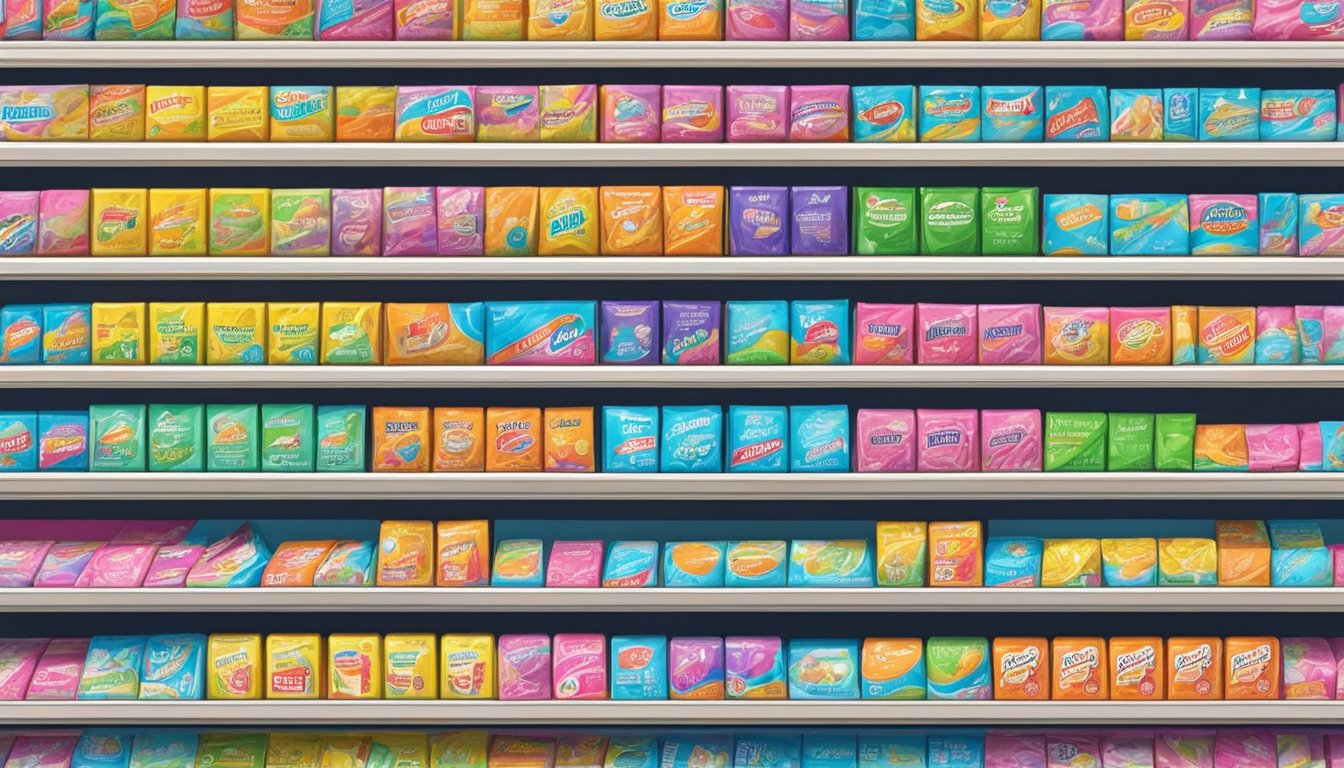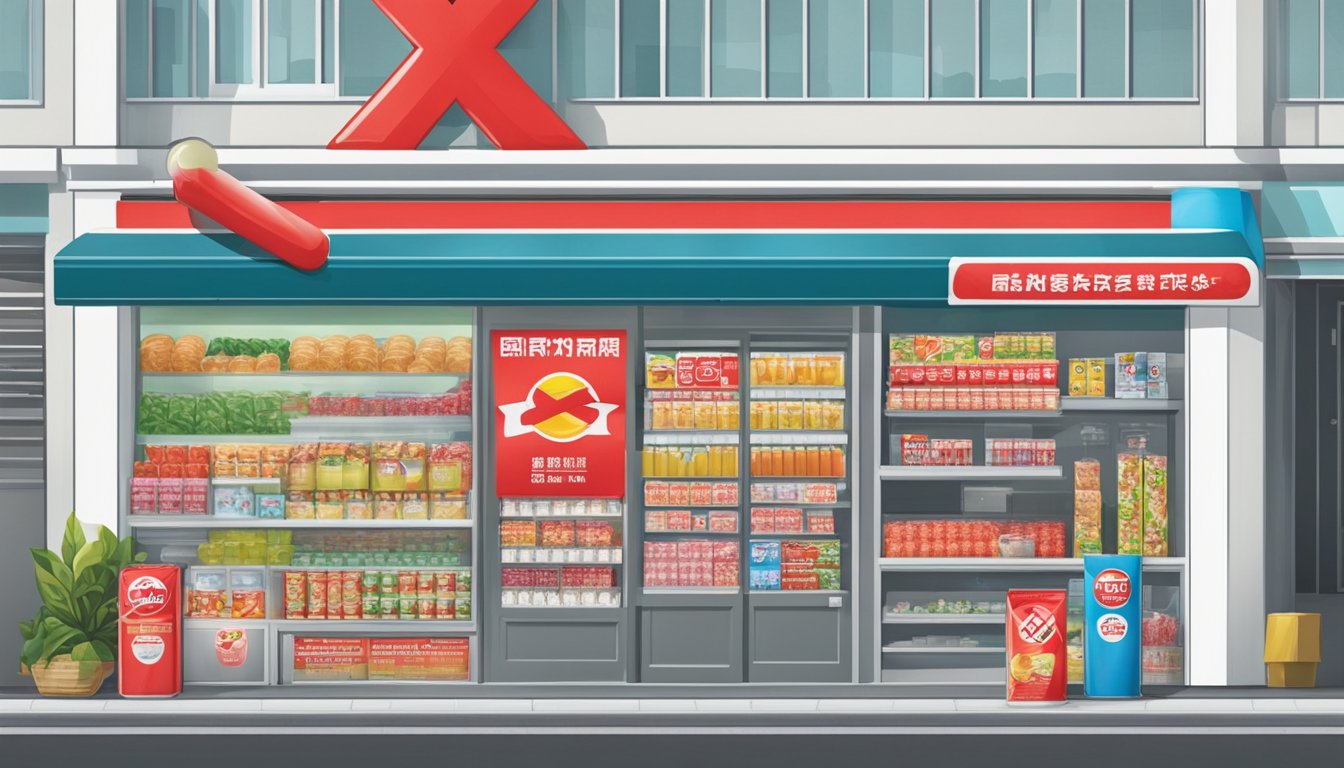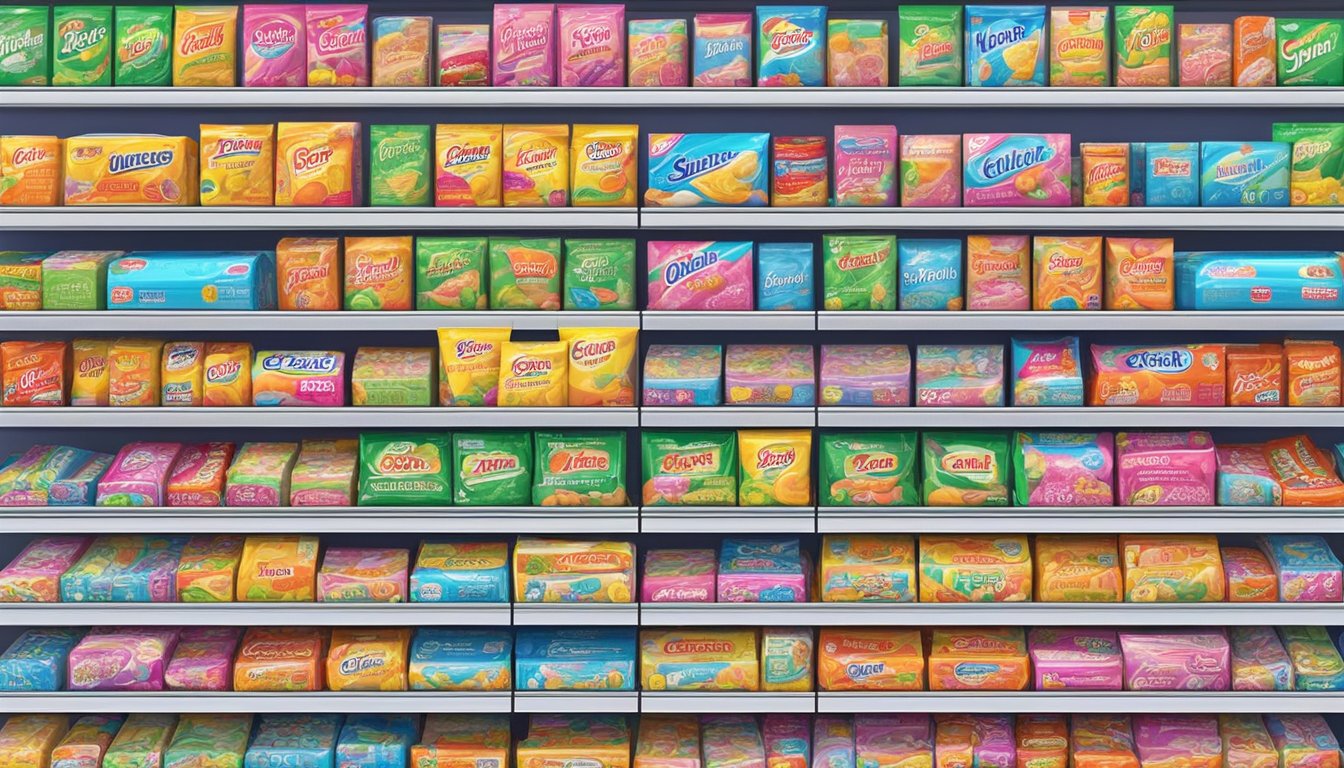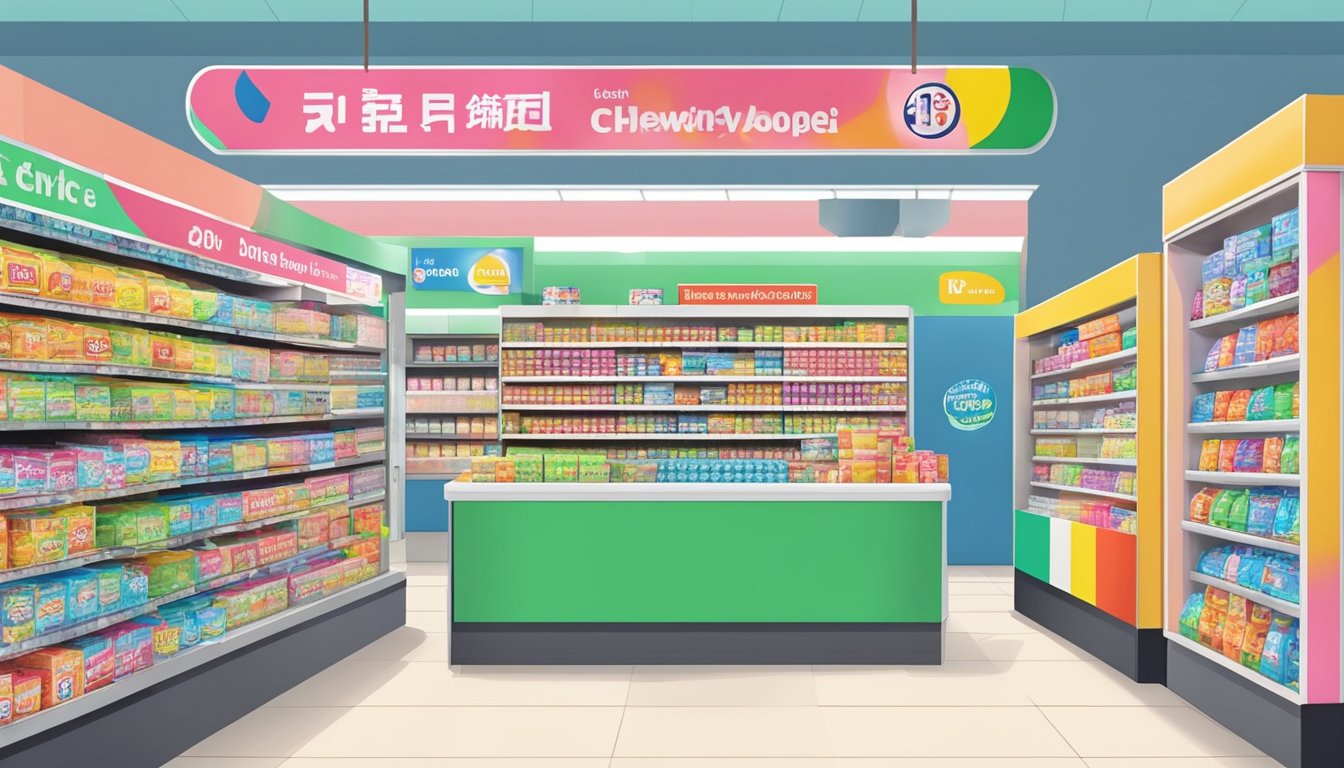If you’re planning a trip to Singapore, it’s important to know that chewing gum is regulated in the country. While chewing gum is not illegal to consume, it’s illegal to import and sell it in Singapore. The ban was put in place in 1992 to prevent the improper disposal of chewing gum, which was causing damage to public property. However, there are still ways to purchase chewing gum in Singapore if you know where to look.

Understanding Singapore’s Chewing Gum Regulations The Singaporean government takes its chewing gum regulations seriously. Chewing gum is not allowed to be sold in the country, and anyone caught breaking this law can face a fine of up to $100,000 or a two-year jail sentence. However, there are some exceptions to the rule. Since 2004, pharmacists and dentists have been allowed to sell therapeutic gum to customers with a medical prescription.
Where to Purchase Chewing Gum in Singapore If you’re looking to purchase chewing gum in Singapore, your best bet is to visit a pharmacy or dental clinic and obtain a prescription for therapeutic gum. You can also purchase therapeutic gum from online retailers that are based outside of Singapore and have it shipped to your address. However, it’s important to note that importing chewing gum without a valid prescription is illegal.
Key Takeaways
- Chewing gum is illegal to import and sell in Singapore, but therapeutic gum can be sold by pharmacists and dentists with a medical prescription.
- Anyone caught breaking Singapore’s chewing gum regulations can face a hefty fine or a jail sentence.
- If you’re looking to purchase chewing gum in Singapore, your best bet is to obtain a prescription for therapeutic gum from a pharmacy or dental clinic.
Understanding Singapore’s Chewing Gum Regulations

If you’re a visitor to Singapore, you may be surprised to learn that chewing gum is banned in the country. Here’s what you need to know about Singapore’s chewing gum regulations.
Historical Context and Gum Ban Origins
The ban on chewing gum in Singapore was introduced in 1992 by then-Prime Minister Lee Kuan Yew. The ban was largely due to concerns about litter and cleanliness in public spaces. The government also cited instances of gum being used to vandalize public property, such as sticking it on train doors.
Current Legal Framework
The Regulation of Imports and Exports (Chewing Gum) Regulations is the legal framework that governs the importation, sale, and consumption of chewing gum in Singapore. Violators of the regulations can face hefty fines and even imprisonment.
Exceptions and Legal Acquisition
There are a few exceptions to the ban on chewing gum in Singapore. Medicinal gum, such as nicotine gum, can be purchased with a prescription from a pharmacist or dentist. Additionally, chewing gum is allowed for research and development purposes if the person is registered under the Control of Manufacture Act.
Impact on Society and Culture
The ban on chewing gum has had a significant impact on Singaporean society and culture. The country is known for its cleanliness and well-maintained public spaces, and the ban on chewing gum has helped to maintain this reputation. However, some argue that the ban stifles creativity and hinders progress.
Consequences of Non-Compliance
If you’re caught importing, selling, or consuming chewing gum in Singapore, you can face fines and even imprisonment. Additionally, littering fines are enforced strictly in the country, and spitting or littering in public spaces can result in a fine or caning.
Overall, while the ban on chewing gum in Singapore may seem extreme to some, it has helped to maintain the country’s reputation for cleanliness and well-maintained public spaces. If you need chewing gum for medicinal purposes, be sure to obtain a prescription from a pharmacist or dentist to avoid any legal issues.
Where to Purchase Chewing Gum in Singapore

If you’re a gum enthusiast, you might be wondering where you can purchase chewing gum in Singapore. Despite the ban on the importation and sale of chewing gum, there are still a few ways to get your hands on some.
Pharmacies and Health Benefits
One of the most common places to find chewing gum in Singapore is at pharmacies. While regular chewing gum is banned, nicotine gum and sugar-free gum are allowed for sale, as they have health benefits. You can purchase nicotine gum at a pharmacy with a prescription from a doctor or pharmacist.
Importation for Personal Use
Another option is to import chewing gum for personal use. You can bring in up to two packs of chewing gum for personal consumption. However, it’s important to note that you cannot sell or distribute chewing gum in Singapore.
Brands and Prices
When it comes to brands of chewing gum available in Singapore, there are limited options due to the ban. However, you can still find popular brands such as Nicorette and Extra. Prices for chewing gum in Singapore can be higher than in other countries, ranging from $3 to $10 per pack.
Navigating Advertisements and Myths
There are many myths surrounding the chewing gum ban in Singapore, such as the belief that chewing gum is completely illegal. It’s important to navigate through these myths and advertisements to find accurate information. While chewing gum is banned for sale and importation, nicotine gum and sugar-free gum are allowed for sale for their health benefits.
Overall, while it may be more difficult to purchase chewing gum in Singapore, there are still options available. Whether it’s through pharmacies, importation for personal use, or finding specific brands, you can still enjoy a good chew in the Lion City.
Frequently Asked Questions

What are the best online stores for purchasing chewing gum in Singapore?
If you’re looking to buy chewing gum in Singapore, there are a number of online stores that offer a wide range of brands and flavours. Some of the best online stores to purchase chewing gum in Singapore include RedMart, Lazada, and Shopee.
How can I find affordable chewing gum in Singapore?
If you’re looking to buy affordable chewing gum in Singapore, you may want to consider purchasing in bulk. Some of the online stores that offer bulk purchases include RedMart, Lazada, and Shopee. Additionally, you may want to look out for promotions and discounts that may be offered by these stores.
Are there specific shops in Singapore that sell dental chewing gum?
Yes, there are specific shops in Singapore that sell dental chewing gum. Some of the shops that sell dental chewing gum include Watsons, Guardian, and Unity. These stores offer a variety of dental chewing gum brands, including Orbit, Trident, and Wrigley’s.
Is it permissible to have chewing gum in Singapore for personal consumption?
Yes, it is permissible to have chewing gum in Singapore for personal consumption. The ban on chewing gum in Singapore only applies to the importation and sale of chewing gum. So, if you’re a gum enthusiast, you can still enjoy a good chew in the Lion City.
What are the consequences of importing chewing gum into Singapore?
Importing chewing gum into Singapore is illegal and carries a hefty fine and possible jail term for those caught. The ban on chewing gum is in place to prevent littering and vandalism, so it is important to respect the laws of the country.
Might one legally chew gum while at Singapore’s airport?
Yes, you can legally chew gum while at Singapore’s airport. However, you should dispose of it properly and not litter. Singapore’s Changi Airport is known for its cleanliness and it is important to maintain this standard.




